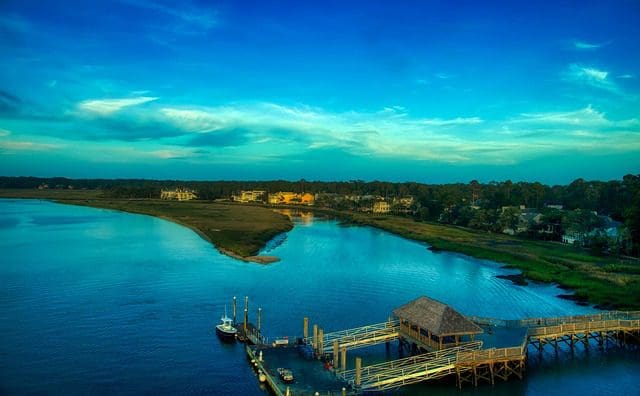Retiring in the Carolinas is a popular option for many people—this is especially true of the coastal areas of both states. In South Carolina, Myrtle Beach, Hilton Head, and the islands and beaches near Charleston are all popular destinations for retirees. There are several communities in the area specifically for people who are retirees. For example, there are homes for sale in Sun City Hilton Head, the largest active adult community in the South Carolina Low Country.
If you’re considering retiring in the Carolinas, more specifically South Carolina, the following are things to know.
1. Popularity Among Retirees
Both North and South Carolina rank high for retirees. On a list from 2018, Florida was the number one destination for retirees, Arizona was number two, and North Carolina was number three. South Carolina was number five behind Texas, which took the fourth spot.
Many retirees in South Carolina are from the north, and this was their direct target when deciding where to live. Other people are so-called half-backers. These are northerns who might have had their eye on Florida, but then they decided the Carolinas would be better thanks to the milder weather, including four seasons.
2. South Carolina is Tax-Friendly
If you’re retiring and comparing North and South Carolina, South Carolina will be more tax-friendly in most cases.
In North Carolina, Social Security benefits aren’t taxed, but the state taxes the majority of other retirement income at a flat rate.
South Carolina also doesn’t tax Social Security benefits, but the state also offers many exemptions on other retirement income types. There’s no estate or inheritance tax, and the property taxes are relatively low.
Suppose you’re a homeowner in South Carolina who’s 65 and older. In that case, a state homestead exemption allows the first portion of your property’s fair market value to have an exemption from property taxes.
If you’re in South Carolina and you’re over 65, you can claim a deduction of $15,000.
3. There are Hurricanes
You have to contend with hurricanes in the coastal areas of both Carolinas.
There isn’t any hurricane insurance, though. Instead, people will combine homeowners’ insurance and ensure it covers wind damage with flood insurance from the National Flood Insurance Program from FEMA.
There’s also a hurricane deductible that’s usually around 5%, but as high as 10% that’s part of homeowners’ insurance policies in 19 states, one of which is North Carolina but not South Carolina.
4. The Most Popular Destinations
According to data from the U.S. Census Bureau and other states, one of the most popular parts of South Carolina for retirees is right along its coastal border with North Carolina. Myrtle Beach, Conway, and North Myrtle Beach grew nearly 33% over the past decade.
Also, South Carolina’s Hilton Head Island-Bluffton-Beaufor region has grown by around 15.6%.
Charleston and North Charleston have seen more than 15% growth as well.
5. Beaches and Golf
If you retire in South Carolina, especially along the coast, you can anticipate that there will be a lot of sand and golf.
There are dozens of active adult retirement communities in the Myrtle Beach area alone, and the so-called Grand Strand region includes about 60 miles of beach. The Hilton Head beaches are also popular with retirees.
In South Carolina, there are more than 350 golf courses, and in North Carolina, around 580, so either destination will let you spend time practicing your swing.
The Harbour Town Golf Links on Hilton Head Island and The Ocean Course on Kiawah Island are world-renowned courses that both host PGA events. The Ocean Course hosts the Ryder Cup and the PGA Championship.
6. Healthcare
South Carolina does have some top-ranking healthcare facilities throughout the state.
For example, there’s the Medical University of South Carolina (MUSC) and other healthcare systems statewide, with specialists who can treat various conditions.
For most people, especially in South Carolina, there aren’t many downsides to retiring in either of the Carolinas.
The weather is probably one of the biggest issues you might have. Along with the threat of hurricanes, there are also hot, humid summers, but coastal breezes can make these much more tolerable. South Carolina is affordable, has a lot of outdoor activities you can enjoy, and has a wide range of housing options to appeal to retirees.
Featured Image by David from Pixabay





